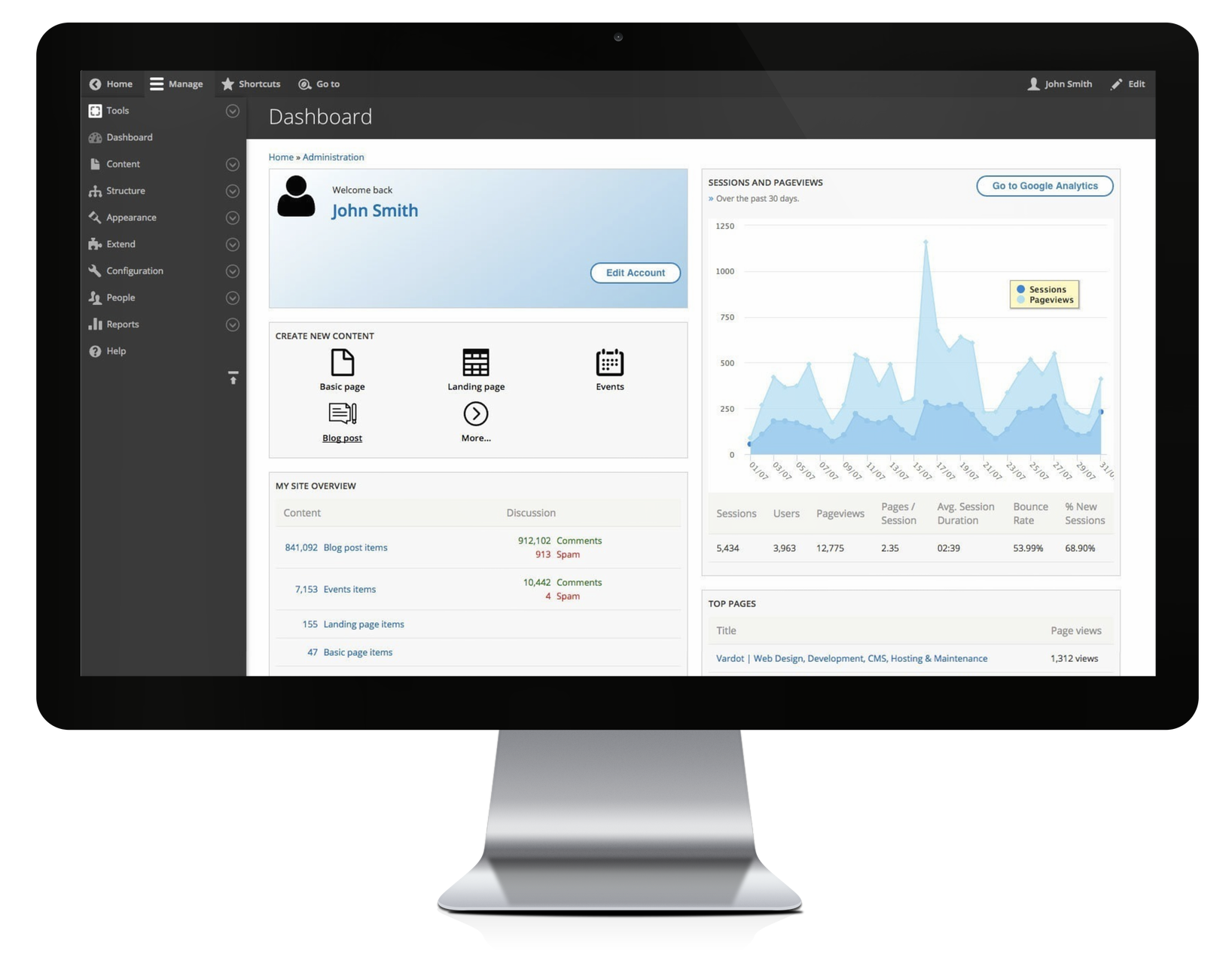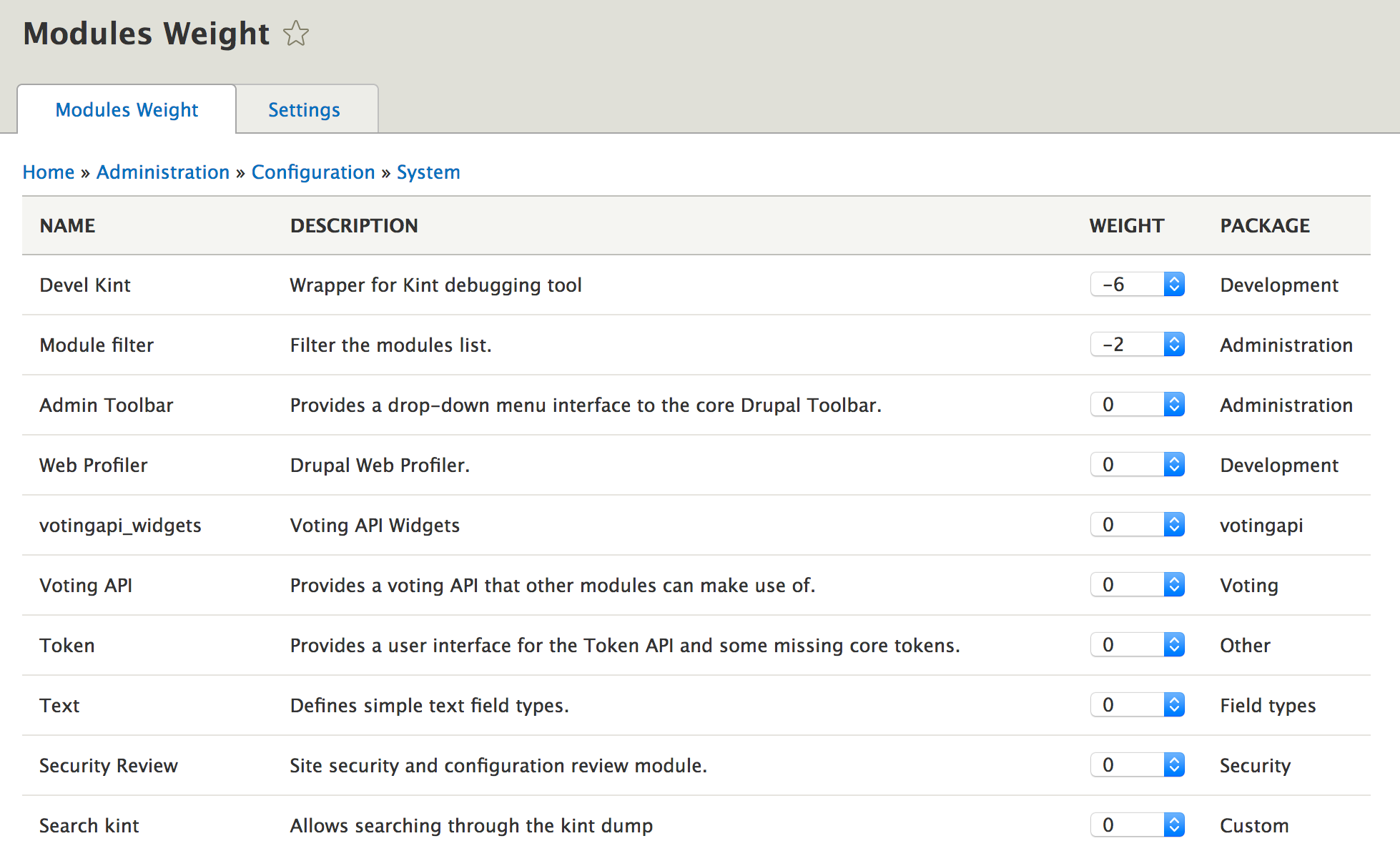Battle of the titans: Drupal vs WordPress for content management, which is better?
June 14, 2024
Our services
Let's talkTable of contents
Quick Access

In the vast world of online content management, two names resonate strongly: Drupal and WordPress. Both are content management systems (CMS) that have dominated the market for years, each with their own strengths and weaknesses.
Choosing between Drupal and WordPress largely depends on the specific needs of a project and the resources available. Here in this blog we will review the key differences between Drupal and WordPress to help determine which is best suited for your next content management project.

Drupal vs WordPress for content management, which is better?
Easy to use
WordPress: The novice user's choice
WordPress is famous for its ease of use. It was initially designed as a blogging platform and has evolved to support all types of websites, from personal portfolios to large e-commerce sites. Its user interface is intuitive and does not require advanced technical knowledge. This makes it the preferred choice for beginners and small businesses who want to establish an online presence quickly without technical complications.
“Its one-click installation requires no coding and can therefore be performed by those without technical knowledge. Since other platforms do not offer the same functionality as WordPress, it is a great introductory platform for beginners who want to quickly conquer the online world”, they noted on the DesignRush portal.
The WordPress admin panel is clear and easy to navigate, allowing users to add and modify content, install plugins, and change themes with just a few clicks. Additionally, the WordPress community has created a vast library of educational resources, including tutorials, forums, and videos, that help users learn and troubleshoot independently.

Drupal: Power and flexibility for the advanced user
Drupal, on the other hand, is designed for those looking for more control and customization. Its learning curve is steeper compared to WordPress, but this added complexity comes with great flexibility and power. Drupal is ideal for experienced developers and large organizations that need a robust and scalable solution.
Drupal's administration interface is less intuitive for newbies, but it offers advanced tools for content management and site customization. Drupal modules allow for deep customization and can be integrated with enterprise applications and complex data systems. This makes Drupal the preferred choice for websites that require specific features and a high degree of customization.

Customization and extensibility
WordPress: Abundance of themes and plugins
One of the biggest advantages of WordPress is the availability of a vast number of themes and plugins. There are thousands of free and premium themes available that make it easy to change the look and functionality of a site. Plugins expand WordPress capabilities, from SEO and security to e-commerce and social media.
However, the abundance of plugins can be a double-edged sword. While it makes it easy to quickly add new functionality, it can also lead to conflicts between plugins or performance issues if not managed properly.
“The theme is the outer layer of your website: the face, the facade, the style, the part that makes it look pretty. With WordPress themes, you can switch between any number of different styles and layouts without having to dig into the code”, they noted in a GoDaddy article.

Drupal: Customizable modules for complex needs
Drupal offers similar flexibility through its modules, although to a lesser extent compared to WordPress plugins. Drupal modules are more robust and tend to be geared towards deep customization and integration with other applications. Drupal allows for greater back-end customization, making it ideal for sites that require complex business logic or integration with other systems.
“When applied to software, composability describes a design principle that prioritizes modularity. Modular software consists of code fragments with standardized interfaces that can be reused and rearranged to produce solutions more quickly (...) Drupal's composable architecture supports this goal, which is why large organizations such as Nestlé, Bayer, Doctors Without Borders , Princeton University and the city of London trust the platform”, Acquia detailed about its CMS.

Security
WordPress: Popularity and vulnerabilities
The popularity of WordPress makes it an attractive target for attacks. Although WordPress itself is secure, extensive use of third-party plugins and themes can introduce vulnerabilities. The key to maintaining a secure WordPress site is proper update management and careful selection of reliable plugins and themes. WordPress also offers numerous security tools and services to protect sites against common threats.
Drupal: Corporate Security
Drupal is known for its focus on security. The Drupal community and its security team are highly committed to identifying and resolving security issues quickly. This robustness in security has made Drupal the preferred choice for government, educational, and enterprise sites that handle sensitive data.
Drupal also allows for advanced, custom security configurations, suitable for sites that need to meet strict security standards and compliance regulations.
Community and Support
WordPress: Large and active community
WordPress has one of the largest and most active communities of any CMS. There are countless forums, user groups, and websites dedicated to WordPress, making it easy to find help and resources. Additionally, there are an abundance of specialized WordPress developers and agencies available for hire, making it simpler to find professional support.

Drupal: Strong and specialized community
Although the Drupal community is smaller compared to WordPress, it is highly specialized and dedicated. The quality of the documentation and community support is excellent, especially for advanced technical issues. Drupal developers are usually more experienced and offer high-quality services for complex projects.
“Drupal's open source model encourages continuous improvement and innovation through the support and passion of the Drupal community. Today, there are more than 1.3 million Drupal users committed to the success of the platform. With such a diverse group of experts working regularly to improve Drupal, creating exceptional digital experiences goes far beyond what a single team of proprietary software developers can imagine”, they noted on the Acquia portal, the company that owns Drupal.

The choice between Drupal and WordPress largely depends on the needs and resources of the project. WordPress is ideal for those looking for a fast, easy-to-use solution with a large number of customization options available through themes and plugins. It is perfect for small and medium-sized businesses, blogs, and e-commerce sites that do not require deep customization.
On the other hand, Drupal is the right option for projects that need a robust, secure and highly customizable solution. It is preferred by large organizations and complex projects that require advanced content management and integration with other systems.
Ultimately, both Drupal and WordPress are powerful tools for content management, and the right choice will depend on the specific goals of your website and the resources available for its development and maintenance.
We recommend you this video
Related Blogs
-2.37.32-p.m.png)
Solutions that nearshore development companies can create
-4.14.10-p.m.png)
Why is it a good idea to hire a mobile app development agency in Austin?
-3.42.08-p.m.png)
5 ways a software development agency improves customer experience
-1.55.44-p.m.png)
Strategies to improve communication with a dedicated software development team
-3.44.22-p.m.png)
IT Services in Atlanta: A guide to the services offered and the benefits for your business
-10.50.25-a.m.png)